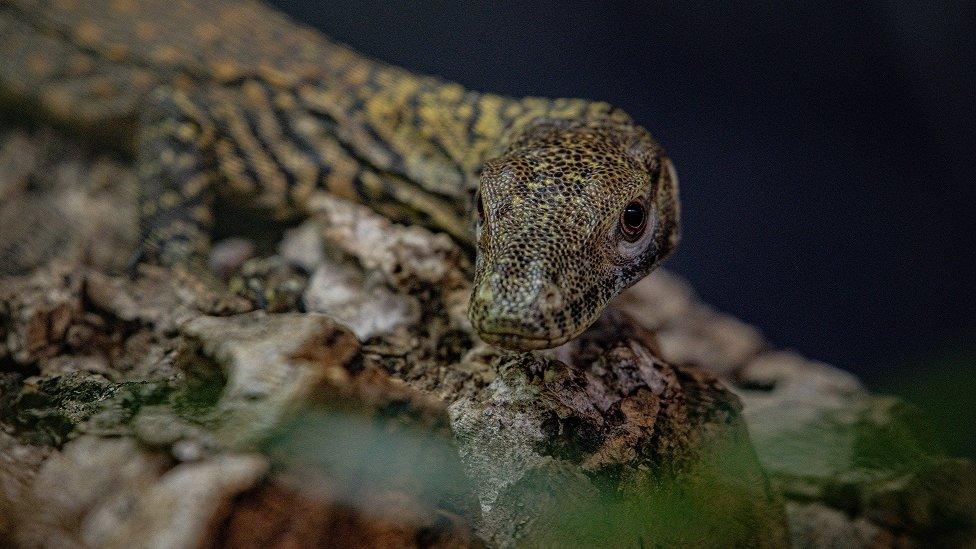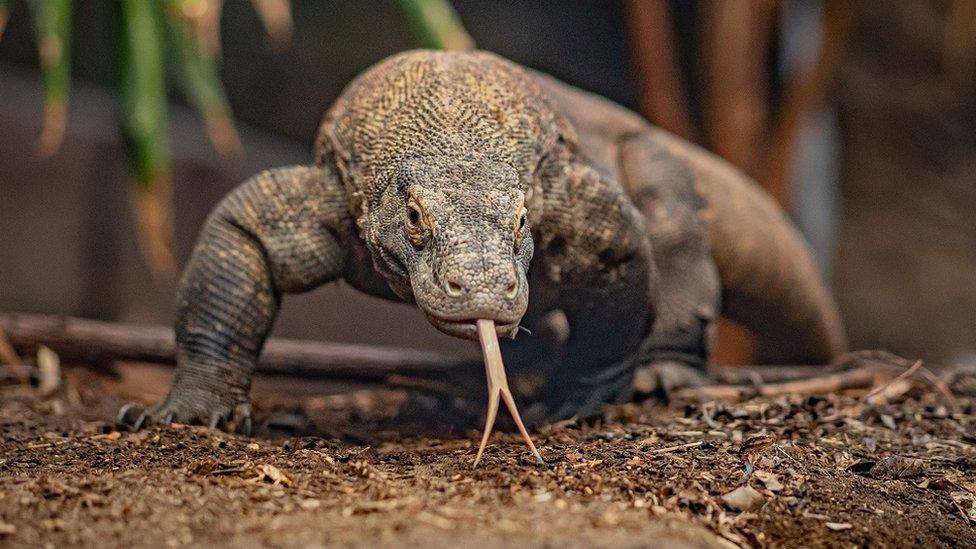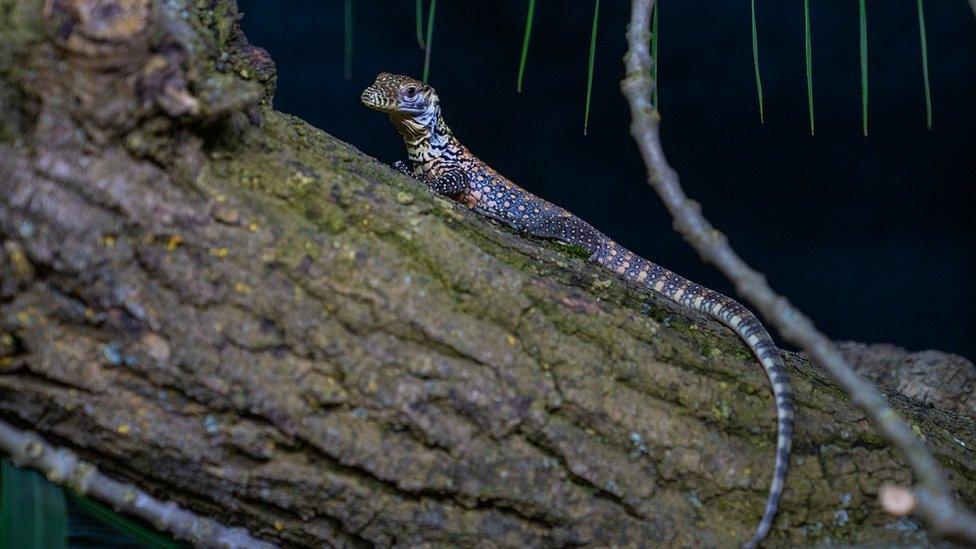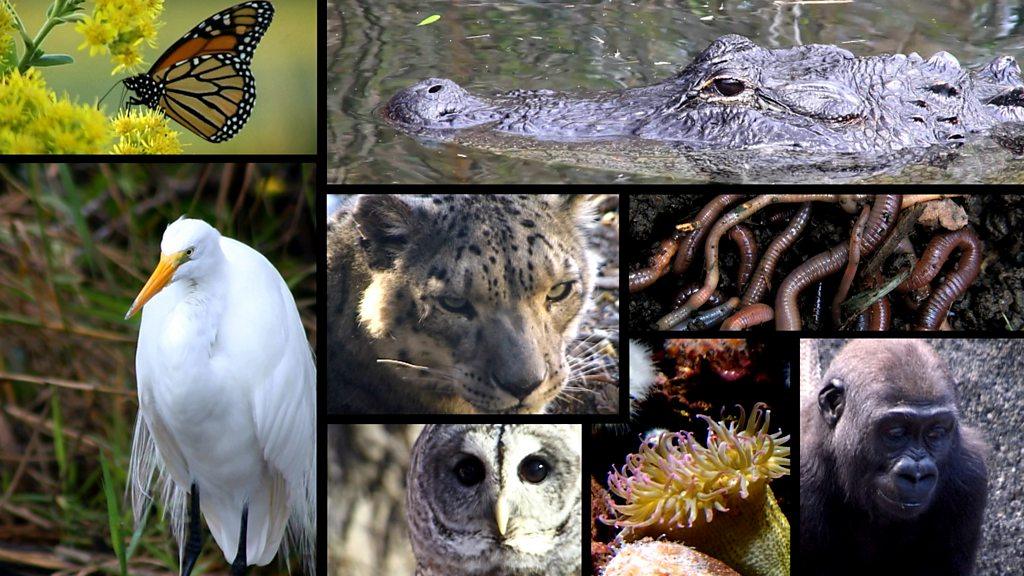Chester Zoo welcomes new pair of Komodo dragons
- Published
- comments

Chester Zoo has welcomed two new baby Komodo dragons
Chester Zoo has welcomed two new baby Komodo dragons.
Parents Mezcal and Satali welcomed their hatchlings, which weighed around 74g and measured just 40cm in length after being kept in an incubator for six months.
Komodo dragons are the largest and heaviest species of lizard in the whole world, and the zoo's new pair could grow to more than three metres in length and weigh up to 90kg.
It's the first time the zoo has successfully bred hatchlings from a pair of mating dragons.
Komodo dragons are very special reptiles with some rather unique characteristics.
In 2007, experts at Chester Zoo became the first in the world to discover that female Komodo dragons can fertilise their own eggs without mating with a male. It's a process known as parthenogenesis and produces only male offspring.
Zookeepers say the two new additions will join a 'vitally important' international conservation breeding programme that is working to protect falling Komodo dragon numbers and build a healthy population in zoos to protect the species' future.

Komodo dragons can grow up to more than three metres in length and weigh up to 90kg
"Komodo dragons are fascinating creatures that have survived on this planet for tens of thousands of years, but despite their incredible resilience, populations in the wild have been pushed to the edge of existence in the last 50 years alone due to increased human activity, habitat loss and a rapidly changing climate," said Matt Cook who is the lead keeper of reptiles at the zoo.
The zoo has worked alongside its conservation partners, The Komodo Survival Program, for more than 14 years and has mapped out the entire wild dragon population on the largest island where they can be currently found - the island of Flores in Indonesia.
It means that for the first time in history, conservationists have a starting point from which to focus their efforts on the most vulnerable populations on the island.
Komodo dragons have an excellent sense of smell. The reptiles can detect the scent of dead or dying animals which are more than five miles away!

Komodo dragons are categorised as 'endangered' by The International Union for the Conservation of Nature (IUCN)
The project led to Komodo dragons being re-categorised in 2021 as 'endangered' by The International Union for the Conservation of Nature (IUCN) in a bid to increase protection efforts for the dragons.
"The recent reclassification of the Komodo dragon has helped shine a spotlight on this incredible species and generate some urgency to help protect the dragons and their island habitat," said Dr Gerardo Garcia who is the head of ectotherms at the zoo and coordinator of Europe's entire zoo population of Komodo dragons.
"Dragons are massively at risk to the changing climate as they live in a very specific areas, which is a small band of habitat that sits between the coast and steep forested hills where, up until very recently, the conditions were perfect for these giant lizards to thrive.
"Any small fluctuations, alongside other threats such as habitat loss and conflict with humans, are increasingly putting these giant reptiles at risk of extinction."
- Published18 January 2023
- Published26 January 2023

- Published3 January 2023
